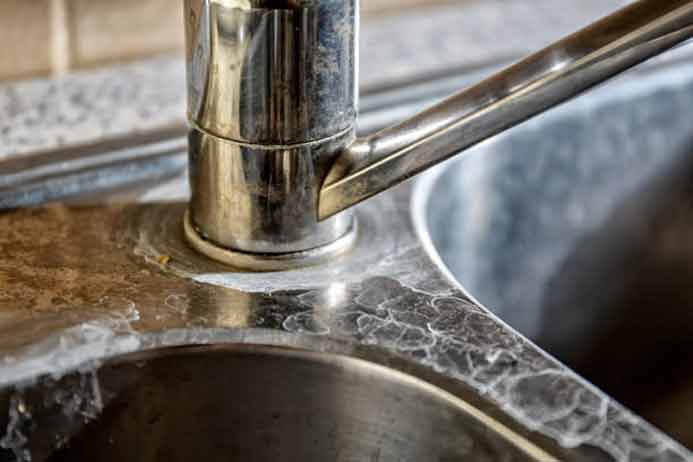Hard Water Plumbing
For homeowners, hard water can present a unique set of plumbing-related problems. What is hard water? Hard water is water that contains higher-than-usual levels of minerals such as calcium and magnesium. This is usually caused by water being naturally exposed to certain rocks, sediment, and soils.
Hard water affects your plumbing system mainly in two ways. One, it can corrode pipes and fixtures, and two, it leaves soap scum and other mineral deposits that can build up and interfere with the proper functioning of the plumbing system or home appliances that utilize water.
The most common problem with hard water is its effect on pipe systems throughout the home. Generally, hard water does not cause major damage, but it certainly takes its toll on pipe systems over time, especially for pipes made of non-coated metals. Without protection from a chemical agent, the minerals in hard water can wear away and corrode the piping, causing eventual leaks and weakened pipes.
Plumbing Troubleshooting Tips
If you suspect you’re having problems with hard water, there are several steps homeowners can take to help safeguard their plumbing and appliances.
First and foremost, it’s important to act fast when it comes to potential problems. If you notice anything suspicious, look into it right away. Be sure to check the pipes in the entire home and don’t just concentrate on the ones that appear to be in good condition. Corrosion and mineral deposits can build up inside the walls of a pipe and be hard to detect.
It’s also important to have a local plumber take a look at the water supply and assess the situation. Not only can a plumber help to determine if you’re having problems with hard water in your home, but they can also provide suggestions for ways to minimize the risk of problems in the future.
One suggestion a plumber may make is to install a water softener. A water softener is a device that removes minerals from the water before it reaches the faucets, curtailing the harmful effects that hard water can have on your plumbing system.
Soap Scum Buildup
Another popular problem homeowners with hard water experience is the build-up of soap scum in fixtures and sinks. Soap scum is a sticky residue that forms when the minerals in hard water bind with the soap being used in the home.
The same minerals that form soap scum can also interfere with the soap itself, making it hard to form lather and further complicating the labor already needed to clean fixtures.
To help combat soap scum buildup, homeowners can use mild, acidic cleaners on bathrooms and kitchen fixtures to help dissolve the buildup. Additionally, switching out traditional soaps for body wash or detergents specifically designed for hard water can help.
Homeowners may also be able to lessen their hard water woes by investing in a water softener. As mentioned before, a water softener can help to reduce mineral content in the water, alleviating some of the common issues associated with hard water.
Hard water can be a challenge for homeowners, but it doesn’t have to be an impossibility to deal with. With a bit of troubleshooting and perhaps an investment in a water softener, homeowners can put their hard water woes behind them.
